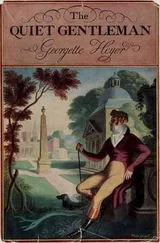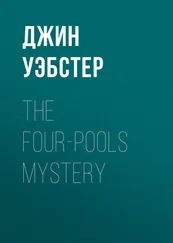“How do you feel about being here?” he asked, twirling a pencil. “I always wonder when it’s someone from an open family. All that legalistic leverage is absent.”
“I’m not too happy about it,” Christopher confessed.
“Not too happy because—”
“It’s embarrassing.”
“Like going to a proctologist?” Meyfarth asked with a smile.
“Somebody’s always wrong. I just don’t like it.”
“How do you feel about refusing Jessie a baby?”
“I’m sorry I had to hurt her feelings.”
“Should she have expected you to say no?”
“Well, yes—if she’d thought about it. If she’d thought about me.”
“What about the argument last Tuesday? How do you feel about that?”
Frowning, Christopher allowed, “I’m not too proud of it.”
“Why?”
“I lost my temper.”
“Anything else?”
“It wasn’t that big a deal.”
“How do you feel about me being party to all your family secrets?”
“I like you all right.”
Meyfarth sat back. “I can’t work with forty percent answers, Christopher. And you can’t learn anything from them, either.”
“What do you mean?”
“That you haven’t given me a soul-deep honest answer yet. ‘Well—.’ ‘Not too happy.’ ‘Not too proud.’ ‘A little uncomfortable.’ ‘Something like that.’ ‘I’m sorry I hurt her feelings.’ ”
“Those are honest answers.”
“Half-truths are lies, Christopher. It’s far more serious when you tell them to yourself than when you tell them to me. But I’m far more useful to you when I know the truth. Shall we try it again?” he asked rhetorically. “You don’t want to be here.”
Surprised, it took Christopher a moment to get the word out. “No.”
“But you think you have to be, to satisfy Loi.”
Grudgingly, “Yes.”
“You don’t know me, you don’t know if you trust me, and you think I’m going to be on Loi and Jessie’s side, anyway.”
A rueful smile. “Yes to all three.”
“If you’re pushed to the wall, you’ve decided to compromise on having a baby with Jessie. But you’ll be damned if you’re going to be talked into letting John Fields into the family. That’s where you’ve drawn the line in the dirt.”
Christopher stared. It was like having his thoughts read. It was like being naked. “Yeah,” he said, almost a whisper.
Meyfarth nodded, satisfied. “That’s better. Now we can start to work. Do you want your family to survive?”
“That’s why I’m here,” Christopher said. “That’s really why I’m here.”
“Are you prepared to risk discovering yourself?”
“What’s the risk in that?”
“Easily said when you think you already know who you are and what you want,” Meyfarth said. “But this won’t be easy. Extended families are so damned complicated. Six vectors with three, twelve with four, not even counting second-order pairings. And noncontract families are even more complicated, because you don’t have all the crutches. Do you know, what you three are doing is actually closer to the original conception than most of my clients?”
“How so?”
“I’ve read Stan Dale’s original treatises. I think he’d have been horrified to have people locked together by contracts rather than by love, and even more horrified to have his name hung on the result. But that’s what happens when a bureaucracy crosses paths with a philosophy.” Meyfarth shrugged. “Ancient history. I’d like to see you succeed, Christopher. I really would. If you can do it without my help, more power to you. If you’d like my help, I’m ready to do what I can.”
Christopher sighed, a pale breath. “This isn’t going to be much fun.”
A polite smile. “You never know,” Meyfarth said. And he waited.
“I don’t know why, but it’s a hard thing to say,” Christopher said.
“I know.”
Christopher frowned, looked up at one corner of the ceiling, then back at Meyfarth. “I’d like your help.”
“Okay,” said Meyfarth, sitting forward. “Then let that be the reason that you’re here. Not Loi or Jessie or John Fields or the baby. This is about Christopher McCutcheon. This is for Christopher McCutcheon.”
Christopher found himself with nothing to say.
“Does that feel better than the reason you walked in here with?” Meyfarth prompted.
“Yeah,” Christopher said, breaking into a smile. “That feels all right.”
Christopher could no more stop himself from referencing the hyper than he could stop himself from breathing. Not only did he not need Meyfarth’s explication of “ancient history,” but he probably could have taught a short course in it himself from what he had read in the last week.
The basic facts were simple. The profession of relationship technologist had grown up alongside the contract Dale family, which in turn had been given its life’s breath by the turn-of-the-millennium AIDS epidemic.
Behind that skeleton was a fascinating and convoluted story. At the end of the twentieth century, every generation in memory had bowed to the nature of the beast and given tacit, usually hypocritical, consent to indiscretions of the flesh—men driven by old programs, women freed by new technologies. But consent was summarily withdrawn by HTLV-III and its mutant heirs, ruling final, no appeal.
With the wages of sin death, monogamy fast regained its fading respect—and collected a bandwagon’s worth of champions. The new fidelity advocacy was an odd alliance comprised, at the most fundamental level, of those women whose security was threatened by male philandering and those men whose control was threatened by female sexual emancipation. Whether they wore cleric’s garb, a doctor’s coat, or the prim dress of a moral reformer, they embraced AIDS almost gleefully as the means to a final victory.
This was true to some degree in every Western nation, but particularly true in the United States, which at the time was already skating down the slope toward social repression. Testing for the damning virus followed the trail blazed by testing for drugs. The lid came down on prostitution, the rad-lib argument that it was a victimless crime rendered laughable.
Pornography, which might otherwise have flourished, fell under ever more restrictive laws, with the Trojan horse of a campaign against homoerotic and analerotic material leading the way to sweeping condemnation of all explicit expression. Hardening hearts victimized the afflicted a second time, shutting them out of medical care, jobs, and even the communities they had long called home.
But even in the United States, the victory did not last long. Like a dammed river in flood season, the accumulating sexual energy penetrated every crevice and eroded every point of weakness, seeking its own level.
To start with, the well-networked Womyn’s community, its lesbian leanings anathema to both species of monogamist, was barely touched by the plague. It became ever more visible as a political constituency and ever more attractive as a sexual safe haven; it exercised its economic might by building Aurora Sanctuary, the smallest of the satlands.
Separatist hard-liners resented the influx of the “fashionably femme,” but their presence made for a more credible voice and the leverage to win two-woman couples the right to contract “marriages” in five states.
Technology offered an even more important outlet. While the public media were drying up, the private media were heating up. Personal computers and Sky LANs, video camcorders and digital cameras, even faxphones and the lowly copier put more than enough resources into the hands of individuals to allow a revolution in home-grown co-op erotica.
What’s more, those who took fantasy one step further found that phone dates and compusex meant that safe sex did not have to mean no sex at all; that there could be intimacy without intercourse. By the time scanning image telephones gave way to hi-band stereo com tanks, a whole new culture and etiquette had grown up around what unfriendly observers ridiculed as “secondhand sex” and “technology abetting pathology.” Defenders cheerfully called it “masturdating” and went right on.
Читать дальше

![Nick Cracknell - The Quiet Apocalypse [= Island Zero]](/books/28041/nick-cracknell-the-quiet-apocalypse-island-zero-thumb.webp)










